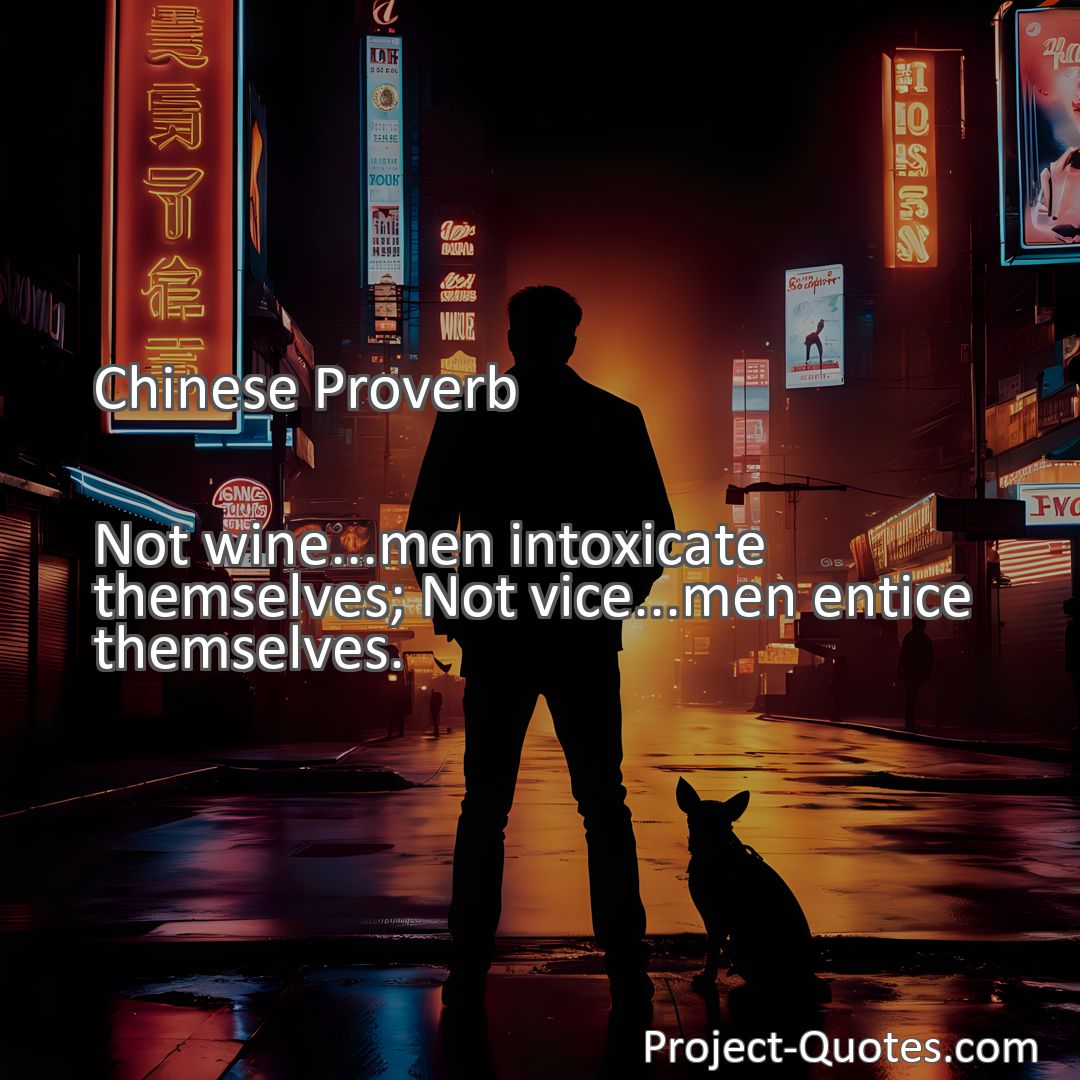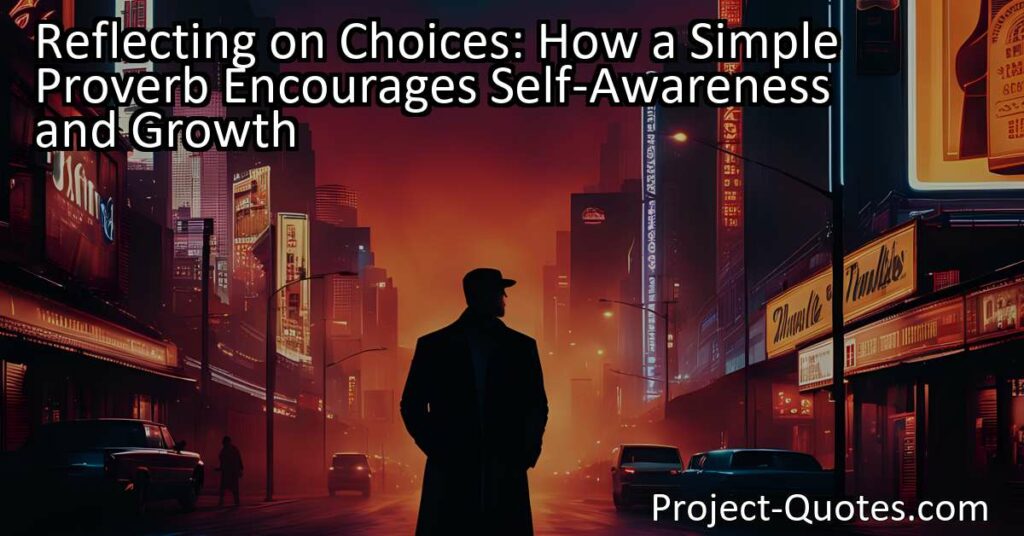Not wine…men intoxicate themselves; Not vice…men entice themselves.
Chinese Proverb
The simple yet profound statement in this Chinese Proverb encourages us to reflect on our choices and desires. It reminds us that true intoxication and allure come from within ourselves, rather than external circumstances or substances. By being aware of our motivations and making mindful choices, we can avoid falling victim to harmful behaviors and find fulfillment in leading a purposeful life.
Table of Contents
Meaning of Quote – Not wine…men intoxicate themselves; Not vice…men entice themselves.
In the wise words of a Chinese Proverb, “Not wine…men intoxicate themselves; Not vice…men entice themselves.” This simple yet profound statement encourages us to reflect upon the choices we make and the desires that drive us. It suggests that the true source of intoxication and allure lies within our own selves, rather than the external circumstances or substances we often blame.
When we think of intoxication, the first thing that comes to mind is often the consumption of alcohol or other mind-altering substances. However, this proverb challenges us to look beyond the bottle and recognize that intoxication can take many forms. It can be found in obsessive behaviors, destructive relationships, or even in the pursuit of power or material possessions. In essence, anything that captures our attention and consumes our thoughts, to the point of clouding our judgment and distorting our perspective, can be considered an intoxicant.
Similarly, the proverb states that it is not vice that entices men, but rather themselves. This suggests that we are responsible for our own actions and decisions, regardless of the external temptations presented. It reminds us that we have the power to choose how we respond to the vices that surround us. We can either allow ourselves to be lured into harmful behaviors or exercise self-control and make choices that align with our values and well-being.
One possible interpretation of this proverb is that it cautions against the dangers of excessive indulgence. It highlights the fact that it is easy for us to become enthralled by things that bring immediate pleasure or satisfaction, without considering the long-term consequences. Whether it be the allure of alcohol, the seduction of illicit activities, or the enticement of unhealthy relationships, this proverb serves as a reminder that succumbing to these temptations can ultimately lead to self-destruction.
Another way to interpret this quote is to see it as a call to self-awareness and personal responsibility. It suggests that, ultimately, our choices and actions are our own. We cannot blame external factors for leading us astray; instead, we must take ownership of our decisions and the consequences that follow. It encourages us to reflect on our motivations, passions, and desires, and to ensure that they align with our values and goals in life. By doing so, we can avoid becoming intoxicated or enticed by things that may harm us in the long run.
Moreover, this proverb also serves as a reminder that the greatest battles we face in life are often internal. It is easy to succumb to external pressures and influences, be it societal expectations, peer pressure, or the allure of instant gratification. However, true strength lies in resisting these external forces and staying true to oneself. By recognizing our own power and agency, we can consciously choose to walk a path that is guided by virtue and self-control.
In a world where instant gratification and short-term pleasures are often celebrated, the wisdom of this Chinese Proverb urges us to exercise caution and mindfulness. It reminds us that true fulfillment and contentment cannot be found in substances or vices, but rather in leading a life of purpose, integrity, and self-awareness. It prompts us to question our motivations and be mindful of our choices, so as not to fall victim to the intoxicating allure of fleeting pleasures.
Ultimately, the message behind this proverb resonates with people of all ages and walks of life. Its timeless wisdom reminds us that we have the power to shape our own destinies, and that we should not allow ourselves to be intoxicated or enticed by external influences. Instead, we should strive to cultivate inner strength, self-awareness, and a sense of purpose. By doing so, we can navigate through life with clarity, resilience, and a deep sense of fulfillment.
I hope this quote inspired image brings you hope and peace. Share it with someone who needs it today!


